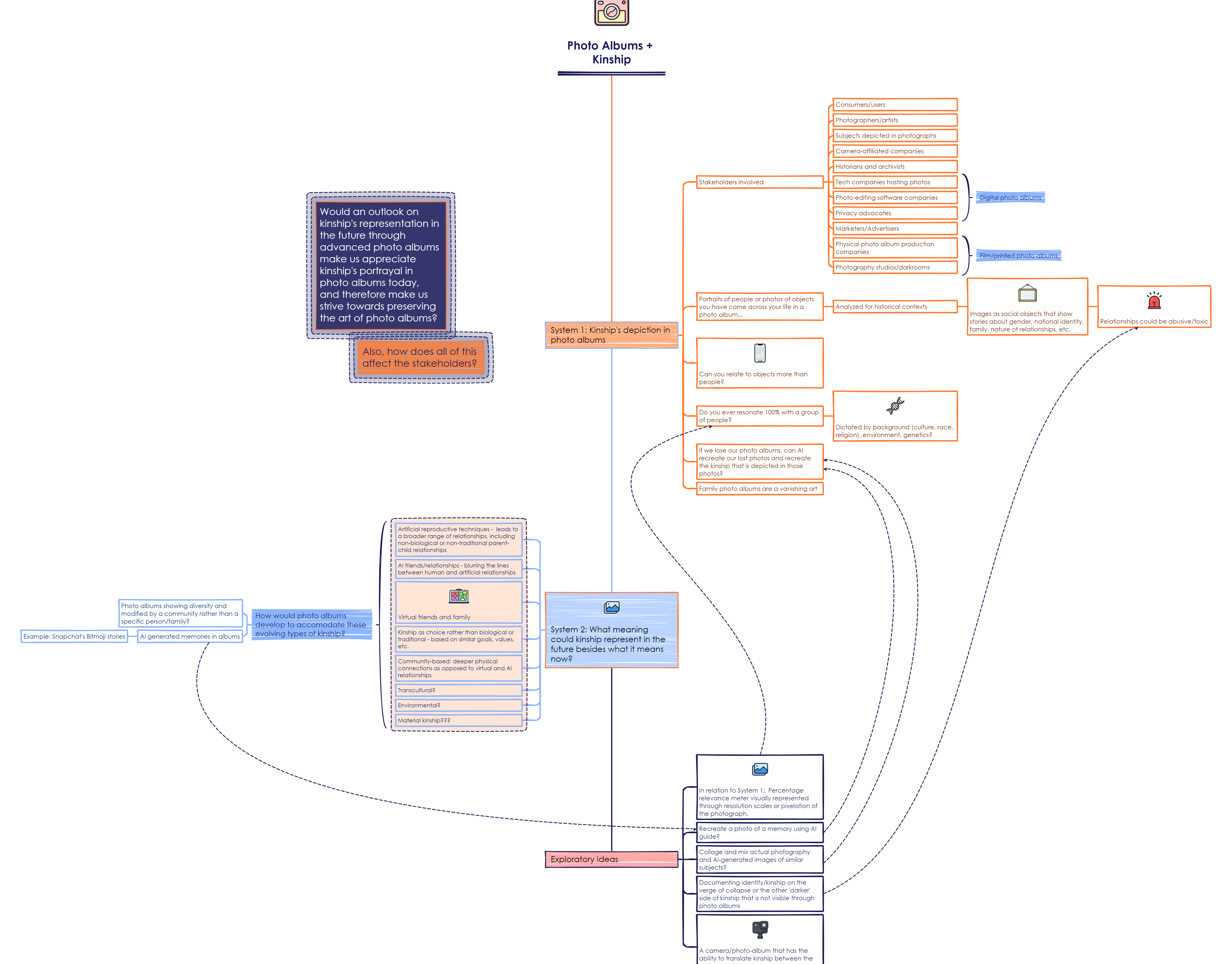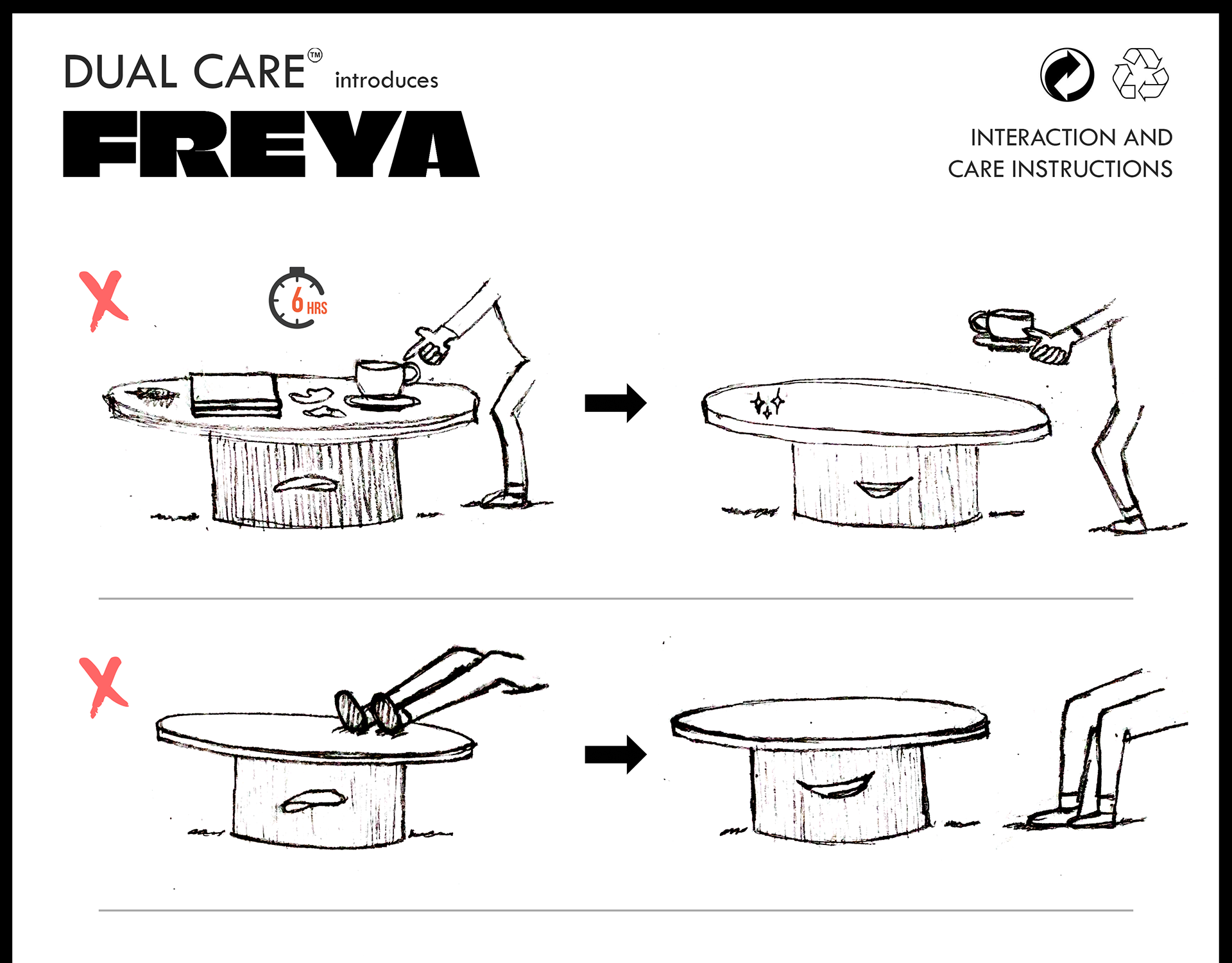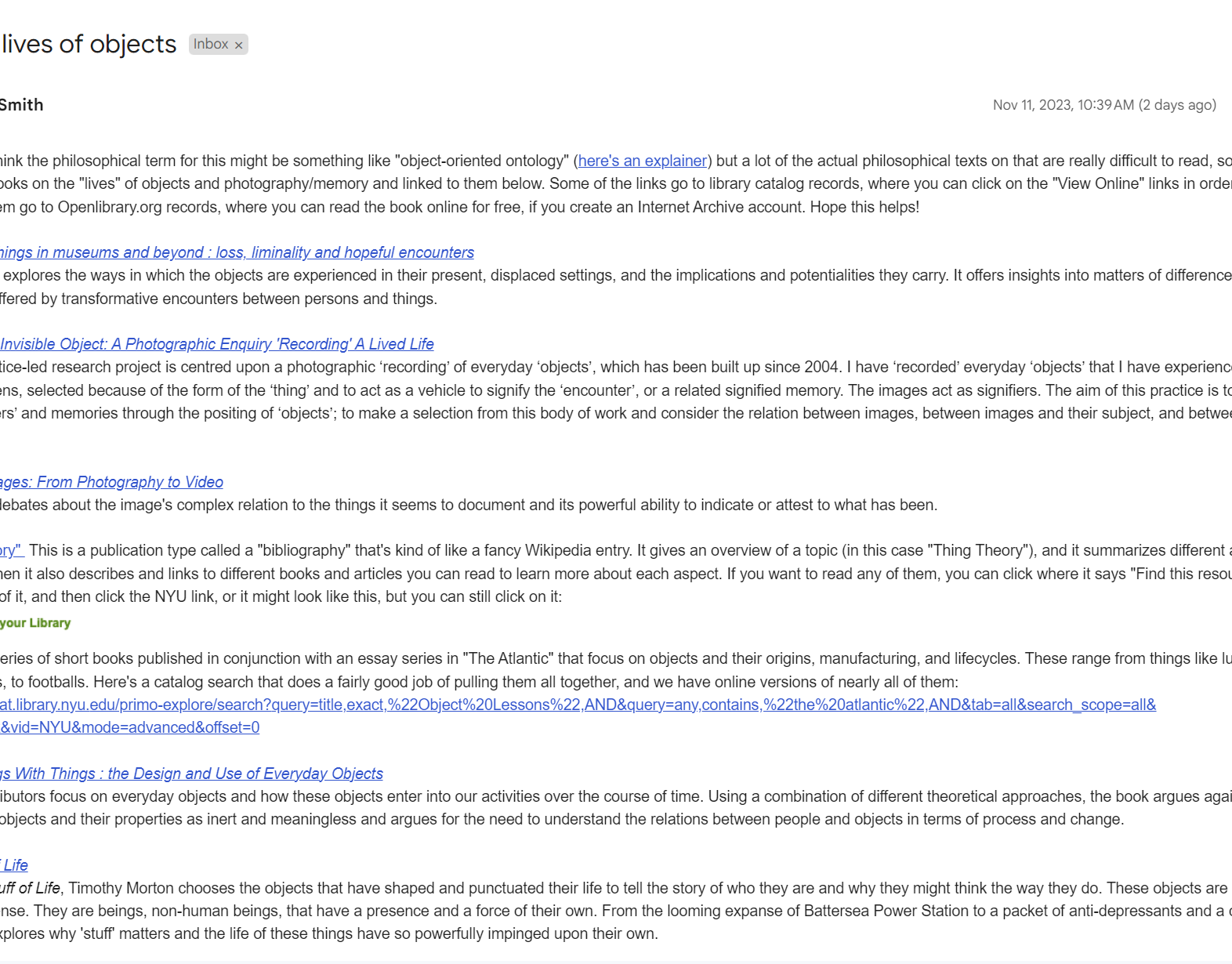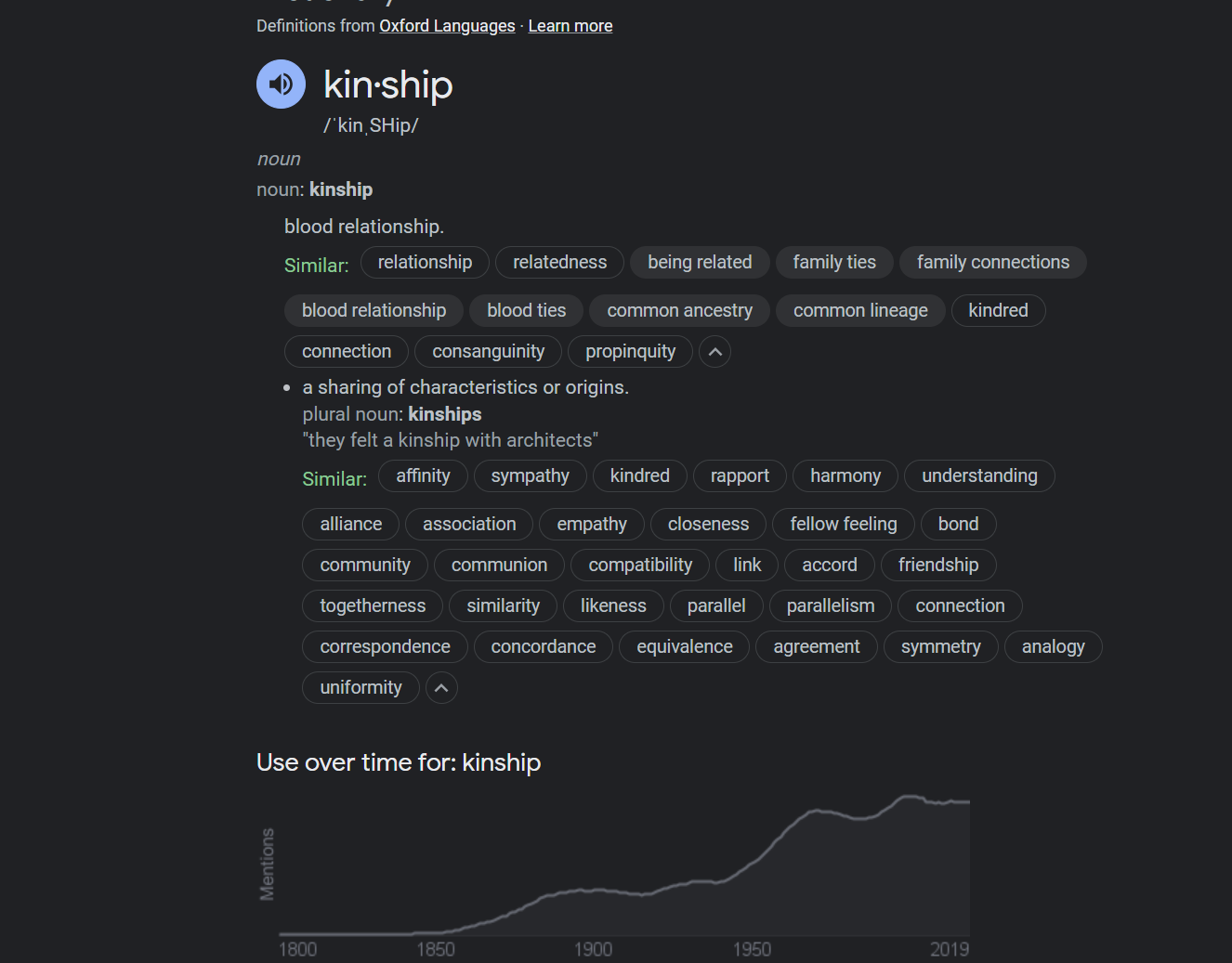Responses to the Metaphors We Live By prompts
Lakoff + Johnson give several examples throughout the text of linguistic metaphorical systems. Are there any you found odd, outdated, or different from metaphorical systems that you use, either personally or in your language, culture, or social sphere? For instance, do you speak about conversation as battle, or use orientational metaphors the same way the authors describe?
Can you identify a metaphorical system that you commonly use? What do you think is the motivating rationale (“experiential basis”) behind that system - or is there one? Have you ever intentionally (or unintentionally) changed the metaphorical system that you use to speak about a certain subject, to reflect a different experience or worldview?
What metaphors/systems of metaphor are commonly used when discussing your topic? If “the essence of a metaphor is understanding and experiencing one kind of thing in terms of another” (5), what other kinds of metaphors might be useful for discussing your topic, or an aspect of your topic?
INTERVIEW
For each interview, include a blurb about who you interviewed and why, a summary/script of your interview, and some key takeaways as they relate to your project/topic.
resources + links
COMMITTING TO A FORM
Chosen form (that I really hope not to regret committing to):
An interview with a photograph
An interview with a photograph
Why:
During my conversation with Sarah, while we were discussing different non-political critical stances, she said a line that inspired the form I want to explore - "What do we want from a photograph? What do we expect from it?" This question spiraled an idea in my head - what about interviewing the photograph for its own opinions? We often have too high of expectations from a photograph, whether to save our memories that we are afraid of forgetting, or capturing a picture-perfect moment, or to piece together a historical narrative, etc. I wondered what might the photograph say about our expectations from it if it were to talk.
References:
I looked into what is called 'Object Interviews' which seemed to be an existing concept already.
- Project: 'Object Interview'
Link - https://objectinterview.com/
"Object Interview is a collection of one-minute videos about design objects in conversation, investigating how objects exist on their own. Made in co-production with cultural institutions, ranging from museums to design galleries, publishing houses and schools, the series involves designers and artists from all around the world to reflect on the way we perceive objects."
- Podcast: 'Everything is Alive' (my personal favorite reference)
Episode 15: 'Connor, Painting' is probably the most one that closely resembles similar viewpoints to that of a photograph, as it discusses how President William Howard Taft's portrait would feel hanging on a wall, at a time when President Obama is the more favorited painting at a museum gallery. The podcast is set in an interview style.
"Everything is Alive is an interview show in which all the subjects are inanimate objects. In each episode, a different thing tells us its life story--and everything it says is true."
- Guide: 'Interview with an object - What would this object say if it could talk?'
Provided by University at Buffalo, the questions mentioned in the document here could work as a starting point of what to think of the interview guide and how to approach it. It could help construct the guide by defining the character of the object.
- Article: 'The Photograph as Metaphor'
"Actually, a photograph is a metaphor, a figurative expression that is based on a comparison. The photographic representation of reality is a metaphorical image of another reality, which remains visually absent. The photograph speaks in metaphors, its story consisting of images without words, fixed images, moments, and places, visual abstractions in space and time. Besides, what they represent are ideas, feelings, emotions, views, opinions, and commentaries. Photography doesn't depict reality, but always refers to a view and concept of reality. It shows how the world is experienced, how the reality is filtered and experienced by the photographer's consciousness.
This is why photographs are metaphors."
Asks people:
To understand what a photo is and what to expect from it. Users try to project specific ideas to photography, so I think my critical stance is in the form of negating all these different perceptions of what we expect from photography. Why can’t we just accept it for what it is - a photographer's perspective on the subjects depicted, a form of art, but not a documentation of reality, and not a full representation of the subject or situation.
Semiotic for the guide:
The photograph being accepted as a person with his/her own voice and purpose
Features:
Polaroid with a QR code, video/p5 sketch/podcast/zoom meeting of interview? Conversation could be a little assertive in a way where the photograph is trying to claim back its personality (unsure about this direction however):
"Don’t inject me with filters!"
"Don’t change my face using Dr. A.I!"
"Don’t change my face using Dr. A.I!"
"I am no image or picture. I am a photograph. Know your vocabulary!"
Users:
All people who use photographs to document/save memories/construct a history narrative
Metaphor:
"A picture is worth a thousand words"; so let’s hear what it has to say
consideration of a different form:
A sarcastic video tutorial/photo album on what a photograph is and stating what it is not ??? The significant change would be losing the aspect of the 'thousand words' metaphor, and the idea of giving a channel or voice to something that is only a visual metaphor and never heard.
ADDITIONAL RESEARCH / development
Margaret's takeaways
My additional findings for this week were mostly me trying to figure out my critical stance by having conversations with different people.
After the painful experience I had with my last exploratory A.I collage making, Sarah had placed us in groups with members of different thematic groups, and I was placed with Ryan and Jaiden. I expressed to them how I felt I had dug myself a rabbit hole, and how this pain had weighed me down a bit. Ryan and Jaiden suggested to perhaps discuss lighter content if the heavy content was too much. They proposed I could explore why people opted for picture-perfect photos to be uploaded on social media (which is essentially a digital photo album), and why the authenticity (or 'the mess') is removed from these photos with tools like A.I. They also suggested to write a list of different 'how-to' iterations.
Our resident, Ai, also suggested that maybe my critical stance was already what I had felt about through my exploration - that changing or reconstructing history is an ethical issue on an individual level (mental health wise) and on a collective level (social history wise), and that history shapes us into who we are today, especially the most difficult parts of it, so how could we change that using A.I?
I also had a conversation with Sarah that I found was very insightful in ways I did not expect. When I talked to her (before my interview with Brian - who later on shifted my entire perspective on the topic), I was concerned with whether to discuss the lighter content or the heavier content, and how the heavier content could be perceived in an offensive manner when my intention is completely the opposite. This concern was particularly highlighted since the heavier content is a political outtake on a matter that I feel often connected to being from the Middle East. Sarah gave me advise that I hugely cherish - that it is okay to not feel ready to discuss this topic for the moment, and to perhaps leave it as a topic to explore further in the future. She also mentioned that not being ready to discuss this topic but pushing myself to do it anyway could result with an outcome where I might feel guilty for perhaps discussing it insensitively or incorrectly, and that that would be a something that I would find very difficult to forgive myself for. As an advise from another artist, I really respected what she shared and decided to perhaps leave this topic for another time.
My interview with Brian later changed my entire perspective on the topic.
Jonny's 5 whys...
Sarah's links








